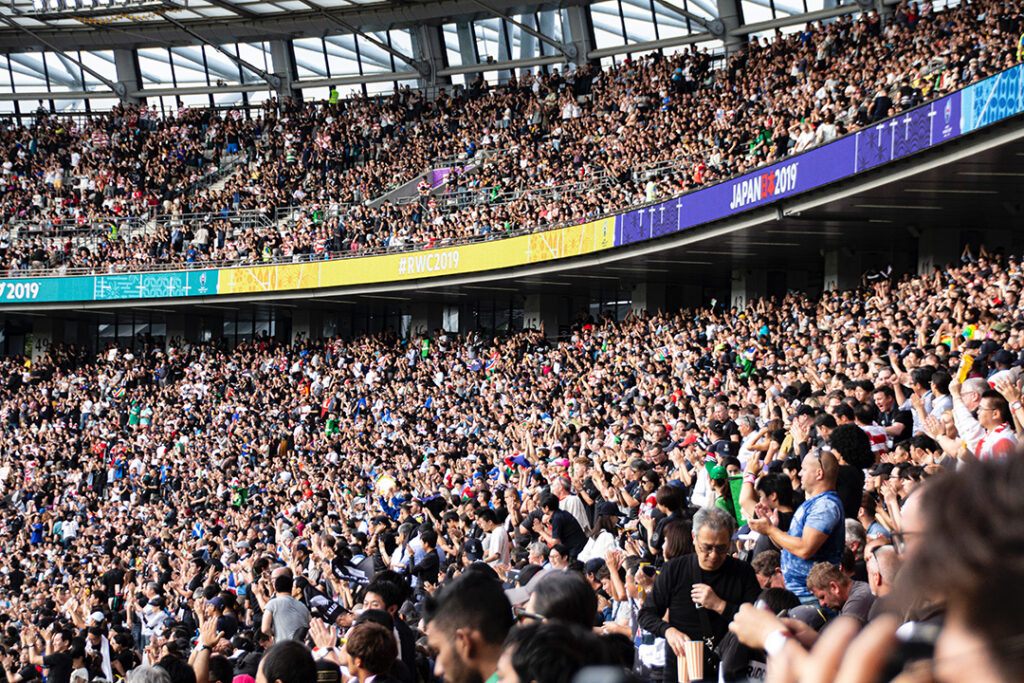Qatar World Cup: An opportunity for dialogue between religions?
Qatar World Cup: An opportunity for dialogue between religions?
The football World Cup in Qatar shows that the sport is a mass movement. But what role do religions play in this regard?
Football moves the masses
Every four years, the football World Cup takes place, a major event that many look forward to. For them, football is not just the most beautiful pastime in the world, but an indispensable part of their (social) life.[1] Football moves the masses and for some it is even a kind of alternative religion.[2]
A specific view of Islam
On November 20, 2022, the Football World Cup began in Qatar, the first World Cup in an Islamic country. This was joyfully welcomed by some and even seen as an opportunity for interreligious dialogue. However, there are also many critical voices in this regard. The Muslim football fan Burak Öztekin, for example, who is active in Germany for the youth organization Ditib (Turkish-Islamic Union of the Institute for Religion), is initially positive. Öztekin: “It’s nice to see that a World Cup can also take place in a Muslim-majority country and that football is being used to create an intercultural dialogue.”[3]
But Öztekin is also aware of the criticism of the conditions in Qatar. For example, Sunni-Wahhabi Islam in the desert state is very conservative, explains Sebastian Sons, an Islamic scholar. The understanding of Islam is based on the time of the Prophet Mohammed in the 7th century. “This is a very exclusive historical interpretation of Islam, where one motto is preached above all: whoever is not for us is against us,” Sons said.[4]
A delicate situation in Qatar
In itself, Qatar as a host of the World Cup is more than debatable.The awarding of the World Cup in 2010 was accompanied by countless allegations of corruption. Nevertheless, Qatar was awarded the contract, even though the desert state was the least suitable of all the bids to host the World Cup, according to internal FIFA audit reports.[5] US investigators consider it proven that three FIFA executive members had each received one million dollars from Qatar. Qatar denies all allegations to this day.[6]
90% of the approximately 2.7 million inhabitants of the desert state of Qatar are migrant workers, mainly from Asia. Many of them are Hindus or Catholics. Qatar’s citizens, on the other hand, are almost all Muslim. Islam is the state religion. Qatar is an Islamic country.[7]
Human rights violations
Even though Qatar worked hard to present itself as an open-minded and tolerant nation ahead of the World Cup, Islam in Qatar is predominantly presented as a conservative and restrictive variable.[8] For example, homosexuals are living in constant fear in the emirate. For instance, there are indications that people are still in prison in Qatar because of their homosexuality. The state monitors social media and checks messages that might come from the LGBTQ+ community.[9]
What is religion? What is the political regime?
In view of this situation, however, the question must be asked: what of this is really religion and what is political regime? What is certain is that the situation turns out to be very complex, both variables cannot be easily separated here. Furthermore, it must be taken into account that in the context of the Qatar World Cup, a very specific view of Islam is represented.[10] This in no way reflects the whole Islamic tradition as such. Within each religion there are many, sometimes very different, traditions and ways of living religion.
Positive and negative effects
But back to the initial question: can football contribute to interreligious dialogue? In this regard, it must be said that, on the one hand, football harbours a clear potential for violence. One can think here, for example, of rioting football fans and increasing excesses of violence, especially in football stadiums all over the world.[11] On the other hand, there have also been positive developments. As a social force with a high enthusiasm factor, football can promote respect and tolerance if fair play and interaction are at the forefront.
In order to break down prejudices and promote diversity and tolerance, the interfaith football match ‘Pastors vs. Imams’ has already been an event for several years in Germany. Burhan Kesici, Secretary General of the Islamic Council for the Federal Republic of Germany, emphasises the importance of such encounters: “These football matches are a sign of dialogue between religions that our society must take as an example.” The former football player and president of the Berlin Football Association (BFV) Bernd Schultz emphasised the lasting impact of such interfaith gatherings: “This encounter is an exchange of religions that goes beyond football.”[12] [13]
No hasty generalisations
All in all, the situation is complex in the sense that on the one hand, football can contribute in a very practical and particularly low-threshold way to interreligious dialogue or to the understanding between people. On the other hand, football also harbours potential for violence and can promote intolerance towards the other. With regard to the controversial discussions surrounding the World Cup in Qatar, which also conveyed a certain image of Islam, one should be warned against hasty generalisations. In this regard, the question remains to what extent the mass phenomenon of football and its fan culture can provide a realistic picture of different religions.
Our team of analysts conducts research on topics relating to religion and society. Find out their relationships on the EARS Dashboard.
Sources
[1] Spiel des Lebens: Der Fußball und seine gesellschaftliche Bedeutung
[3] Fußball-WM in Katar: Zwischen islamischer Tradition und Moderne
[4] Fußball-WM in Katar: Zwischen islamischer Tradition und Moderne
[5] Anschauen oder Boykott: Warum ist die WM in Katar umstritten?
[6] Anschauen oder Boykott: Warum ist die WM in Katar umstritten?
[7] Fußball-WM in Katar: Zwischen islamischer Tradition und Moderne
[8] Fußball-WM in Katar: Zwischen islamischer Tradition und Moderne
[10] Fußball-WM in Katar: Zwischen islamischer Tradition und Moderne
[12] „Pfarrer vs. Imame”: Ein Fest für Fairplay und Toleranz
